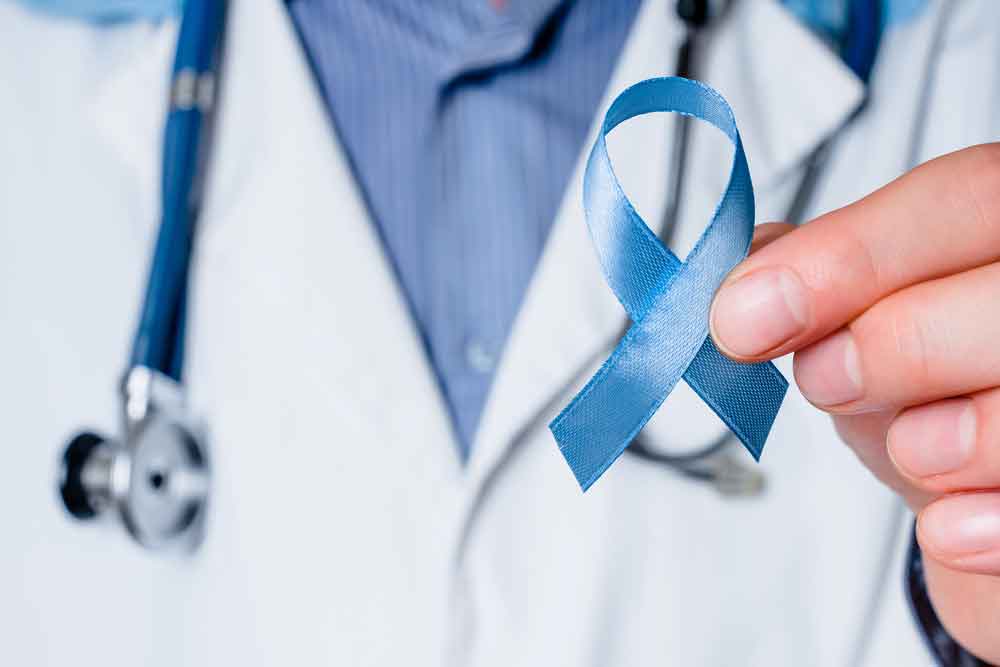The prostate gland is responsible for producing seminal fluid and plays a crucial role in sexual function. Located at the neck of the bladder, a healthy prostate improves the quality of life by promoting normal urination and enhancing sexual performance by preventing premature ejaculation. It is important to take preventative measures from a young age to avoid developing infections or prostatitis, which may increase the risk of prostate cancer in the future. Maintaining good prostate health is therefore vital for overall well-being and a fulfilling sexual life.
Prostate cancer is one of the most common cancers that affect men. According to the American Cancer Society, one in eight men will be diagnosed with prostate cancer in their lifetime.
Although the incidence of prostate cancer is relatively low among Arabs due to genetic predisposition, it significantly increases in black Africans. As a result, the prevalence of prostate cancer is higher among black Africans in the United States.
While prostate cancer is a serious health concern for men, the good news is that it can often be detected early through regular screening tests. Early detection is key to successful treatment and can greatly improve the chances of survival.
Diagnosis and Treatment Options
Prostate cancer is typically not diagnosed based on symptoms and is often discovered incidentally. The symptoms of prostate cancer and benign prostate enlargement are similar, so it is important to seek medical advice if you experience any symptoms.
Early detection of prostate cancer allows for the option of radical surgery, such as robotic radical prostatectomy, which is a primary treatment option worldwide. For individuals who are not suitable candidates for surgery, alternative treatment options include hormonal therapy or radiation therapy.
Prevention is also an important aspect of prostate health for men. Here are some tips for maintaining a healthy prostate.
Eat A Healthy Diet
Oily fish rich in omega-3 fatty acids, veggies, and foods high in healthy fats like avocados, almonds, and olives are some of the finest foods for prostate health. Tomatoes, pomegranate juice, and walnuts are examples of foods that reduce the risk of prostate cancer.
Regions of the world where men experience reduced rates of prostate cancer all share the same dietary components. They consume plant-based protein sources. They don’t consume a lot of processed meals or sugar. A diet low in sugar, processed foods, and saturated fats is the healthiest diet for prostate health. One diet worth looking into is the Mediterranean diet since it promotes a healthy way of living and eating1.
Exercise Regularly
Although it’s not entirely understood how diet, exercise, and body weight affect prostate cancer risk, there are several things you may do that could reduce your risk. Men who are overweight or obese are more likely to acquire advanced prostate cancer or prostate cancer that is more likely to be fatal, according to some research2.
Quit Smoking
Some of the primary causes of death in males are influenced by smoking. Tobacco’s carbon monoxide clings to red blood cells and stays there until the cell dies, which can result in other disorders including prostate cancer. If you smoke, consult your doctor about the best strategy for quitting3.
Get Regular Check-Ups
Regular prostate exams can help detect any abnormalities or signs of prostate cancer early. Men over the age of 50 should have a prostate exam every year, or as recommended by their doctor.
In addition to regular check-ups, there are also screening tests available for prostate cancer. The prostate-specific antigen (PSA) test is a blood test that measures the level of PSA in the blood. High levels of PSA can be a sign of prostate cancer or other prostate issues. Men who have a family history of prostate cancer or other risk factors may need to be screened earlier or more frequently.
In summary, prostate health is an important aspect of men’s overall health. By taking steps to maintain a healthy prostate, such as eating a healthy diet, exercising regularly, quitting smoking, limiting alcohol consumption, and getting regular check-ups, men can reduce their risk of prostate cancer and improve their overall health and well-being. Early detection of prostate cancer through regular screening tests can greatly improve the chances of successful treatment and survival.
References
- Prostate Cancer Foundation of New Zealand. (2014, December). 5 Steps for Better Prostate Health.
- American Cancer Society. (2022). Can Prostate Cancer Be Prevented?
- NewYork-Presbyterian Hospital. (n.d.). Tips for Better Prostate Health.
- Mayo Clinic. (2022). Prostate Cancer Screening.
- National Institute on Aging. (2022). Prostate Problems.
